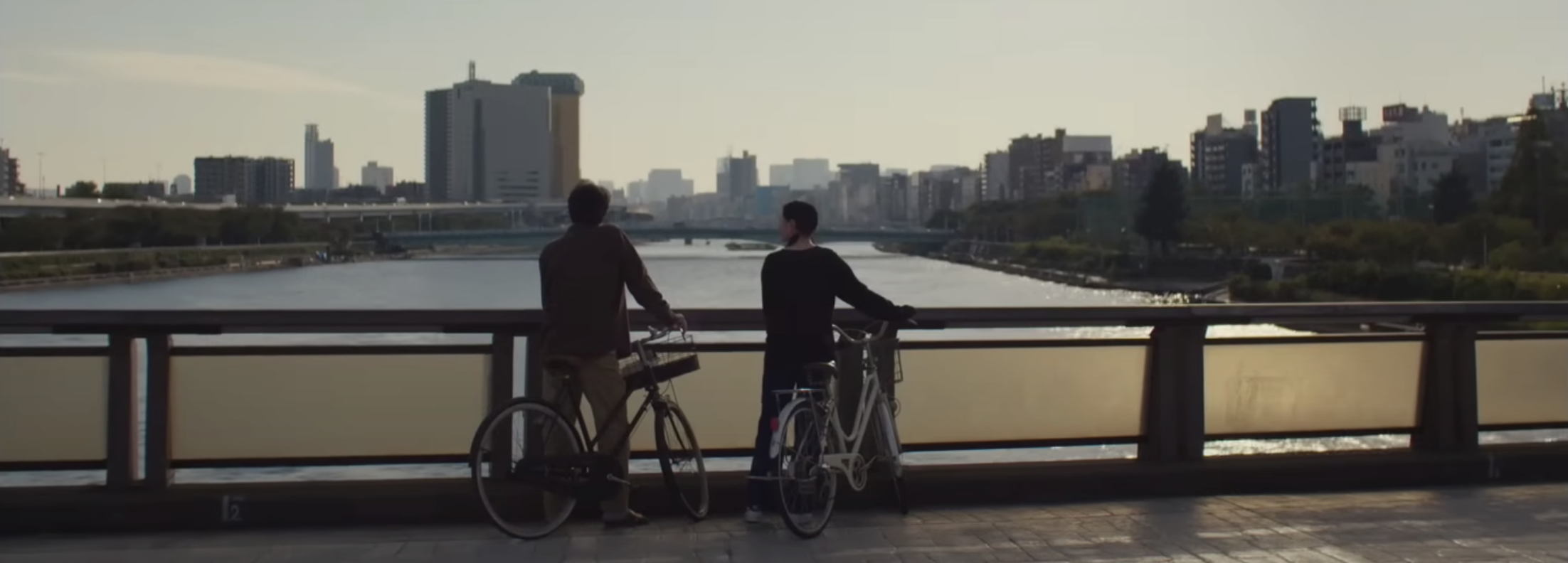PFF Film Review: Perfect Days
Editor-in-chief Rhea Chalak reviews Wim Wender’s latest drama Perfect Days (2023) starring Kōji Yakusho in the role of a humble toilet cleaner.
I imagine a city — in this case Tokyo — to be like a web of colourful threads, entangling and merging into each other. At certain points the mingling threads get very thick, and at other points, the threads run thin and frail, strings barely meeting each other. With Perfect Days (2023), director Wim Wenders seems to have taken hold of a pair of tweezers and plucked out a thin, almost unnoticed thread that runs through the entire web, pale and invisible. This thread is the life and character of Hirayama, a toilet cleaner, played by Kōji Yakusho.
The film is showing as a part of Perspectives Film Festival this year, with Sound as their defining theme. PFF describes sound as “the backbone of a film’s sensory skeleton”. Watching Perfect Days makes it all the more evident the role sound plays, not just in the film, but in life as well. Hirayama himself is mostly silent and talks very little - his days are punctuated with dialogue from other characters, the sounds of city life, and a vintage cassette collection ranging with music from Patti Smith and Otis Redding that permeates from the audio system of his blue van. From this cocoon of internal silence that we find ourselves cooped in through his experience of life, we are able to observe the surrounding sounds even more.
The film opens simply; we see Hirayama wake up, brush, get dressed, meticulously tend to his little garden of indoor plants, assemble things he needs for the day before stepping out of the house and smiling up into the early morning light. There is a detailed portrayal of him at work; a task that most of us probably find distasteful, yet he appears to take pride and dignity in the monotony. The film sets itself on the brink of the binaries of old and new, Asian and Western, in a cosmopolitan Asian city. Hirayama does not know about the Swedish app Spotify, only listening to cassettes from a time beyond. He spends his mornings cleaning the beautiful, artistic, and posh public toilets around Tokyo, a symbol of Tokyo’s technological advancement and creative modernity; yet after work returns to the quiet, aging bathhouses that are traditional to the Japanese, patronised only by other older Japanese men like him. He takes photographs on a film camera. He reads books written by writers like Faulkner in Japanese. He listens to Lou Reed. These weekdays are followed by weekends of laundromats and bookstores and an evening drink at a restaurant. The days are followed by nights and hazy dreams characterised by black-and-white vignettes that seem to say something but end up saying nothing at all. The cycle repeats itself.
If one is expecting a dramatic plot line or a gripping story then Perfect Days is the imperfect choice. The long silences of Hirayama and the slow pacing of the film make one feel as if they are there beside him, truly immersed in his life. We are the audience yet we are also akin to a silent observer, almost a part of Hirayama himself. Kōji Yakusho plays the character in a most personal, intimate way: the role is almost claustrophobic with the lack of lines and expression through speech; yet Yakusho’s demeanour and facial expressions break out of that rigidity to portray a gentle, deeply emotional, and graceful man. There are certain points in the film that hint at a painful or sorrowful past - as triggered by the arrival of Hirayama’s niece Niko (played by Arisa Nakano) - yet Wenders does not really dive into these narratives, instead leaving them as secretive hints that add to the character’s mystery. The characters (all played by exceptionally strong actors) that weave around Hirayama’s life cross over and entangle into his, creating ripples; yet the story - and life - moves on simply.
There is not very much that happens within the film, besides a moving portrait and character study of a man and the life he leads. Yet this experience of watching it feels almost like a treasure Wenders has placed within our hands, like a guide or lesson on how to live. To me it feels like guided meditation, — “Next time is next time. Now is now.” Live in the present moment. Embrace every second.



